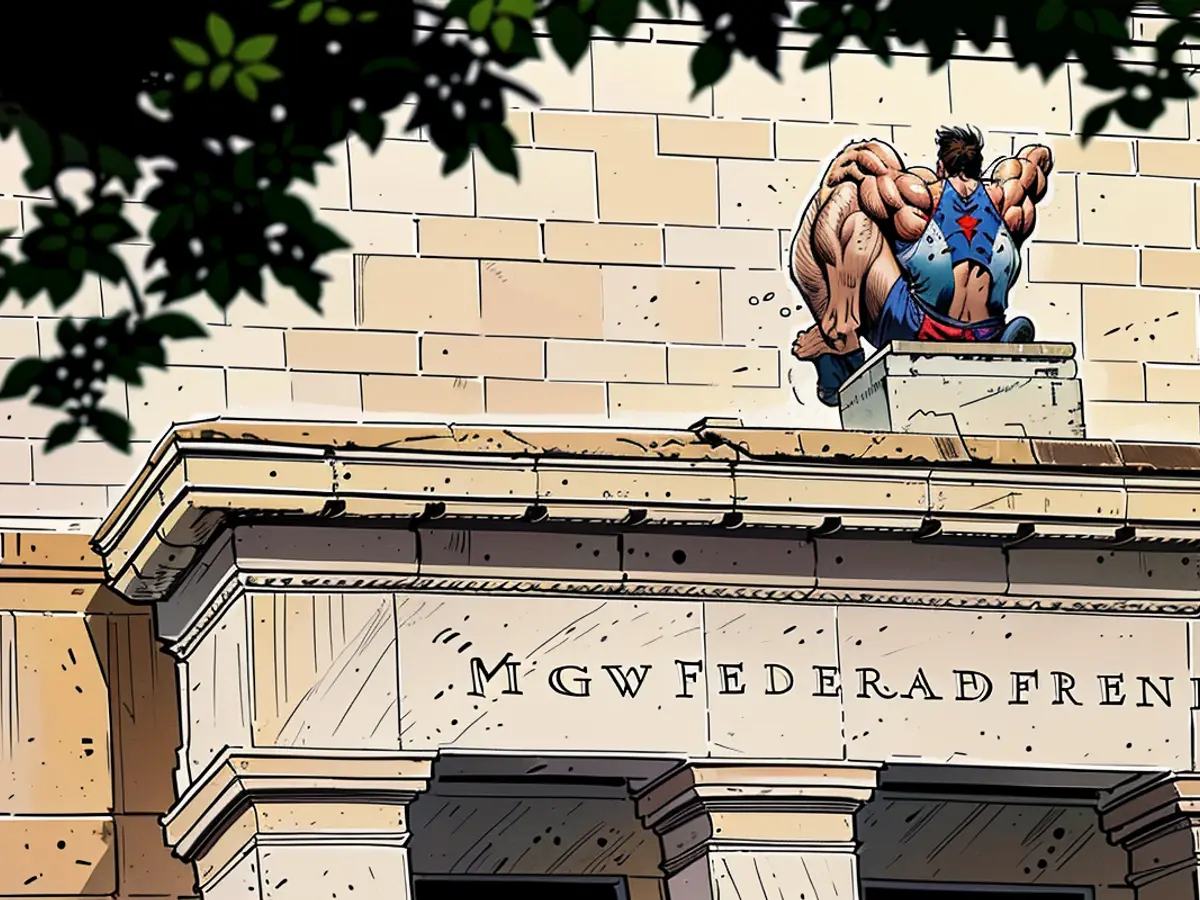U.S. monetary authorities issue cautionary statements about potential delay in adjusting interest rates
The Federal Reserve is trying to curb inflation without damaging the economy, and some central bankers are voicing doubts about their approach, suggesting an impending interest rate increase.
Fed economist Austan Goolsbee flagged potential dangers from a delayed rate hike. Appearing on CBS on Sunday, the Chicago Fed president noted that while there's no guarantee the Fed will lower its base interest rate as predicted in September, not acting could negatively impact the job market. "If you set high interest rates and keep them there while inflation decreases, you're essentially tightening monetary policy," he explained.
Mary Daly, president of the San Francisco Fed, concurred. She told the Financial Times that it's high time to reconsider interest rates.
For over a year, the Fed has kept its base interest rate between 5.25% and 5.50% to temper economic growth and keep downward pressure on inflation. Goolsbee pointed out that the economic picture includes both promising signs and some worrisome factors: "If you maintain monetary policy too restrictively for an extended period, you'll encounter issues with the Federal Reserve's employment mandate."
Amidst weak employment data spurring concerns of a recession earlier this month, financial markets experienced turmoil. However, a flurry of positive data has since quelled those fears. Investors now eagerly await guidance on the Fed's next step. The upcoming Jackson Hole symposium, starting Thursday, serves as an opportune platform. Fed Chair Jerome Powell is anticipated to use the gathering on Friday to signal any imminent policy loosening before the September 18 rate decision.
The Federal Reserve's approach towards monetary policy, aiming to curb inflation without harming the economy, is being questioned by some central bankers, who suggest an interest rate increase may be needed. Goolsbee, a Fed economist, highlighted the potential risks of a delayed rate hike, asserting that maintaining high interest rates while inflation decreases is a form of tightening monetary policy.








